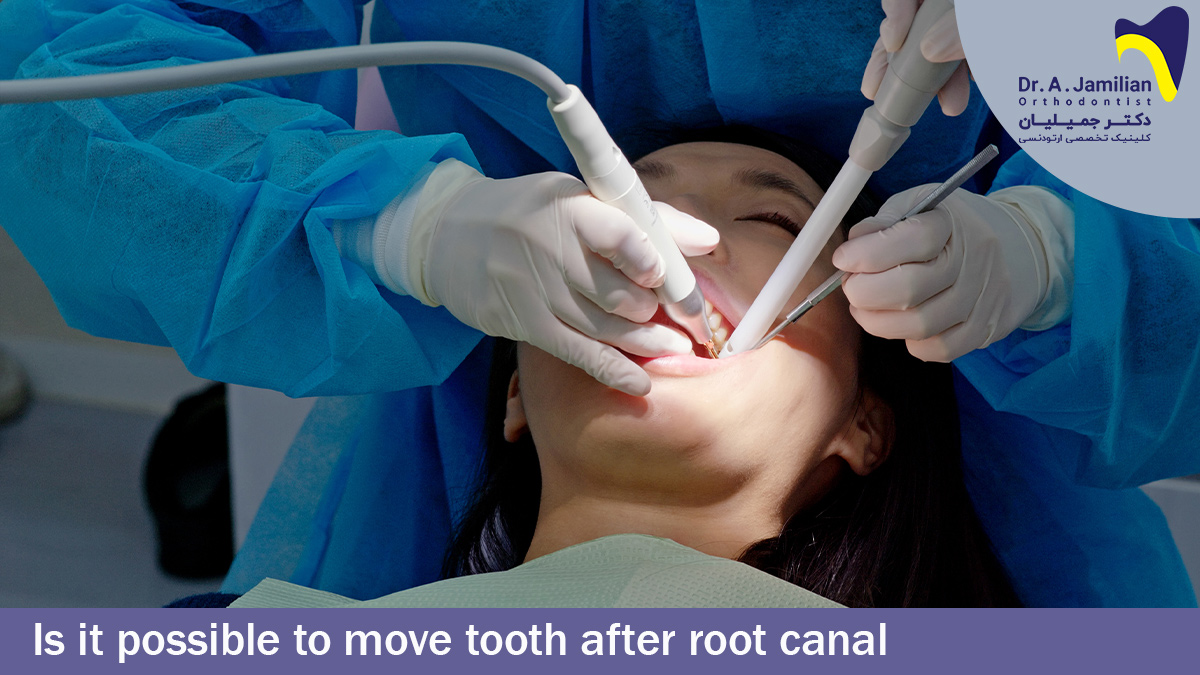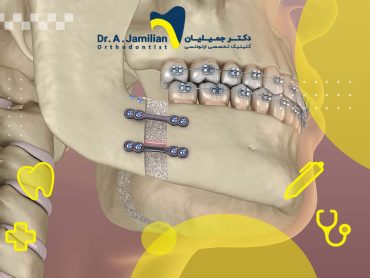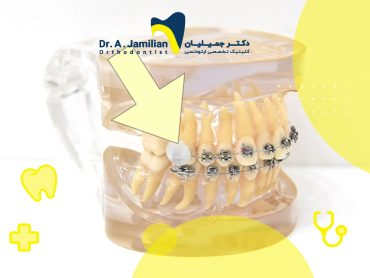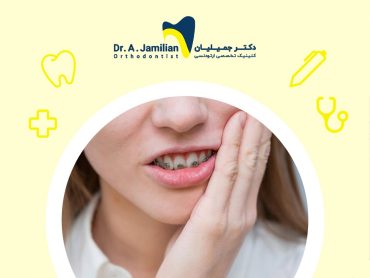The possibility of moving teeth after root canal is among the frequently asked questions for those who need orthodontic treatment. These people want to know if the movement of endodontically treated teeth is the same as the movement of healthy teeth? Is it possible that these teeth be damaged? Read this article if you are among those thinking about orthodontic treatment and questioning about the movement of endodontically treated teeth.
Root canal treatment is a procedure, in which the damaged pulp is removed. The dental pulp is the soft part of the tooth, consisting of nerves, blood vessels and connective tissue. This nerve is only responsible for creating sensation and its absence does not affect tooth movement.

Orthodontics of endodontically treated teeth
Orthodontic treatment requires the movement of the teeth and their proper replacement. Now, this question is raised “can endodontically treated teeth move just like other teeth during orthodontic treatment?” The answer is that endodontically treated teeth are different from previous natural ones. The nerve is removed and the teeth become filled with new materials that may break and separate. However, their movement is feasible depending on the orthodontist’s experience.
Success of orthodontics on movement of endodontically treated teeth
If the orthodontist could apply orthodontic forces to endodontically treated teeth in the right directions, the teeth will move without any problem and will be well placed. It should be emphasized that the dentist’s work who has done root canal treatment is of particular importance.
The root canal treatment must be properly and completely done and the tooth should be filled with appropriate materials using a suitable method. If these points are followed well and the orthodontist does their work correctly, it could be said that the movement of endodontically treated teeth is possible and root canal treatment does not create any limitation for orthodontic treatment.
If root canal treatment is well done, but the orthodontist still diagnoses that brackets may break endodontically treated teeth, they use rings, called orthodontic bands, instead of brackets, that cover, move and align endodontically treated teeth. Orthodontic band is a type of orthodontic treatment performed without using brackets.
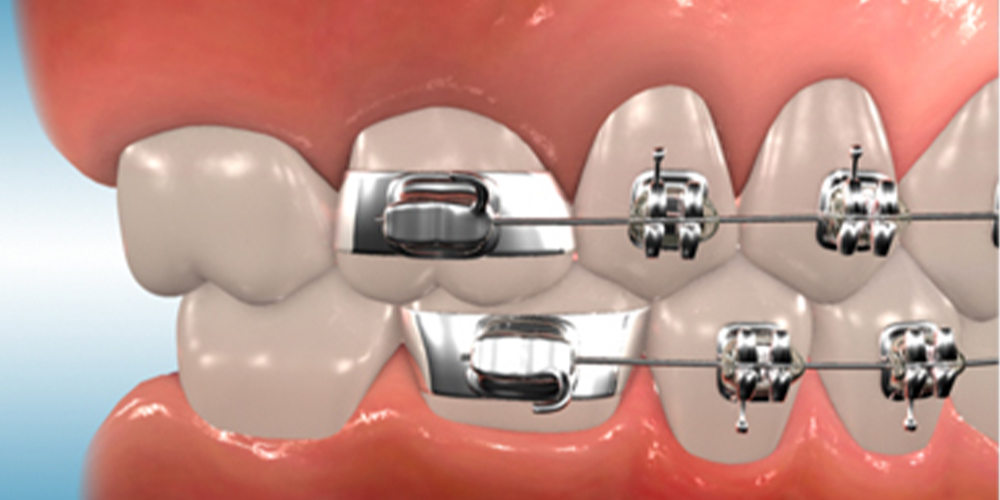
Determining whether orthodontics should be done using brackets or bands is a very specialized task. Therefore, consult an orthodontist who has the necessary qualifications and experience to do orthodontics.
As mentioned earlier, orthodontics and root canal treatment do not interfere with each other, but they should be performed under the supervision of an orthodontist. Thus, if you have already done root canal treatment, you could start your orthodontic treatment under the supervision of an orthodontist without any worries. It should be noted that endodontically treated teeth are even more resistant to root resorption that could affect the movement of orthodontic teeth. In general, root canal treatment could be done before, during and after orthodontics, and there is no obstacle for orthodontics of endodontically treated teeth.
FAQ movement of endodontically treated teeth
Yes, in addition, root canal treatment can even be performed on teeth with orthodontic brackets. Your orthodontist may use special orthodontic brackets that move the teeth further in place. Therefore, it is possible to perform root canal treatment before, during, or after using brackets.
No, aching of a root canalled tooth indicates its infection and incomplete treatment. Therefore, root canal treatment should be repeated after which orthodontic treatment can be performed.
The speed and ability of the tooth to move are the same in both cases and there is no difference in orthodontic treatment.
If the root canal treatment is done well and accurately, there will be no problem and orthodontic movement will not cause a periapical abscess.
